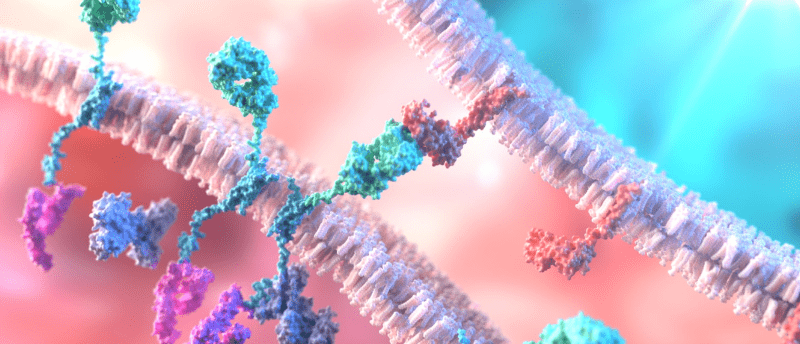Hypophosphatemia as a predictor of neurological toxicity post CAR T-cell therapy

Recipients of chimeric antigen receptor (CAR) T-cell therapy often endure neurological toxicity post treatment, which can be in the form of cytokine release syndrome (CRS) or immune effector cell-associated neurotoxicity syndrome (ICANS). To distinguish predictive markers of ICANS and maintain the effectiveness of CAR T-cell therapy, new research into the association of ICANS and hypophosphatemia was conducted by researchers at UCLA (CA, USA).
CAR T-cell therapy has proven to be a pioneering immunotherapy treatment for B-cell leukemias and lymphomas, however, post-therapy onset of CRS and ICANS affects ~50% of recipients. Unlike CRS, which can be managed with targeted therapies, ICANS treatment involves nonspecific immunosuppression with corticosteroids, which reduces CAR T-cell efficacy and inevitably the outcome of treatment.
Hypophosphatemia – a condition whereby a patient possesses serum phosphate levels below 2 mg/dL – is also frequently associated with CAR T-cell therapies and can cause weakness, confusion, altered mental status, seizures and coma. Considering the likeness of ICANS and hypophosphatemia symptoms and the widespread incidence of hypophosphatemia during CAR T-cell therapy, Theodore Nowicki and his team set out to determine whether there is a clinical association between the two.
Nowicki, Assistant Professor-in-residence in the Department of Pediatrics and Microbiology, Immunology and Molecular Genetics at the David Geffen School of Medicine, UCLA commented:
“The treatment of ICANS is currently limited to supportive care and steroids, which are nonspecific and can have their own side effects. Therefore, having the ability to predict the onset of ICANS would be a very helpful tool for clinicians.”
The team conducted two investigations: one into the mechanism behind low phosphate levels post CAR T-cell therapy, which was performed in vitro, and another exploring the relationship between hypophosphatemia and ICANS using a retrospective study of a clinical cohort.
You may also be interested in:
- CAR-T cell development: an interview with Michael Schwenkert
- Webinar: accelerate your cell and gene therapy workflows with next‑generation analytical tools
- Cell and gene therapy development for oncology: an interview with David Willoughby
From the first study, the researchers concluded that the increased phosphorus-dependent metabolic demand of CAR T-cells was responsible for the depletion of extracellular phosphorus in vitro, which could ultimately drive hypophosphatemia in patients.
The second, clinical study, confirmed that there was a correlation between hypophosphatemia and ICANS; in the cohort of 77 patients, low phosphate levels was the only significant indicator of ICANS, with 91% of ICANS sufferers also exhibiting hypophosphatemia. Nowicki continued:
“While some patients who experienced hypophosphatemia did not develop ICANS, we found that the patients with ICANS consistently had more severe degrees of hypophosphatemia. Furthermore, among patients with low phosphate levels, the severity of hypophosphatemia correlated with the severity of the ICANS that they developed.”
In addition, the researchers found that patients with hypophosphatemia experienced significantly longer duration of ICANS than patients with phosphate levels in the normal range. Nowicki added:
“Clinicians could potentially utilize serum phosphate measurements, which are regularly tested in patients receiving CAR T-cell products, to help predict when they are at greater risk for developing ICANS.”
As this was a retrospective study, the authors want to prospectively study whether hypophosphatemia causes ICANS:
“I think this is an important future question to address,” said Nowicki. “My group is continuing to actively study this potential connection. If confirmed, it would have significant implications for how ICANS is managed in patients receiving cell therapy.”
Source: Eureka Alert press release: https://www.eurekalert.org/news-releases/968101






